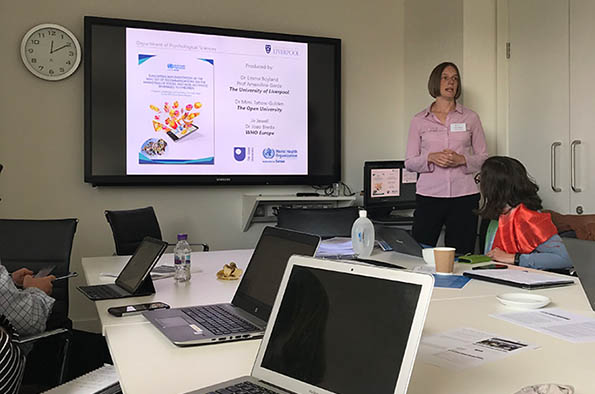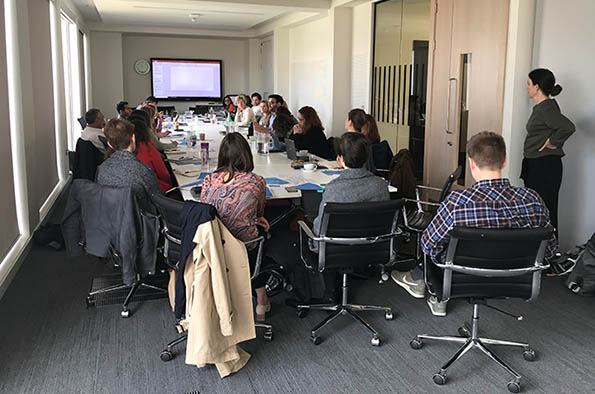On 18 March 2019, the UK Department of Health and Social Care (DHSC) and the Department for Digital, Culture, Media and Sport (DCMS) launched a joint consultation on the introduction of more robust restrictions on the marketing of unhealthy food to children. This policy consultation was announced as part of the UK Childhood Obesity Action Plan published on 25 June 2018, following extensive pressure from various public health actors to protect children effectively from the harmful impact that unhealthy food marketing has on their diets and therefore their health.
Option of a 9pm watershed for unhealthy food ads
The consultation seeks views on the policy option of introducing a 9pm watershed on TV advertising of unhealthy food and similar protection for children viewing adverts online. These proposals reflect growing recognition that the existing rules have not been sufficient to protect children from exposure to unhealthy food marketing.
The consultation focuses both on traditional broadcast TV and, crucially, on digital media. Children are spending increasing time online, and platforms such as YouTube are now major sources of entertainment and creative content. Internet access is often via mobile devices, with over 80% of 12-15 year olds in the UK owning their own smartphone and half owning their own tablet (Source: Ofcom Media Use and Attitudes report 2018). There are currently no legally binding rules governing the marketing of unhealthy foods online: the system operates on a series of voluntary rules overseen by the Committee of Advertising Practice and the Advertising Standards Authority. The consultation seeks opinions on whether the watershed option might also be an effective regulatory approach for food marketing in the digital sphere.
Workshop sessions
The workshop comprised of 3 main sessions:
- After an introduction to the consultation by DHSC and DCMS representatives, the first session discussed the evidence supporting the introduction of 9pm watershed on TV and equivalent rules online. Emma Boyland set out why the current system is ineffective in protecting children from unhealthy food marketing and why a watershed for TV is stronger approach. The talk demonstrated that The University of Liverpool has generated key evidence that exposure to television food advertising triggers increased snack consumption in children, and is now at the forefront of making a similar case for digital marketing. Mirroring the structure of the consultation, issues relating to the regulation of TV advertising were covered first, before the focus moving to the digital environment: Malcolm Clarke from Cancer Research UK, Barbara Crowther from the Children’s Food Campaign and Beth Bradshaw from Food Active reflected on their contribution to the evidence base, including large scale nationwide surveys to demonstrate the associations between TV marketing exposure and eating behaviour in young people (including one such project with Dr Boyland) and the high level of parent and public support for stronger restrictions. Preliminary results of a Health Impact Assessment of a 9pm watershed for TV (conducted in collaboration with Dr Boyland) were presented by Dr Mytton (University of Cambridge), before Dr Critchlow (University of Stirling) outlined the lessons that could be learnt for digital regulation by looking at some example of online alcohol marketing rules across Europe.

- The workshop then focused on the challenges that the introduction of such measures likely to face from food and advertising industries. Caroline Cerny from the Obesity Health Alliance highlighted the often-heard industry claims that food marketing restrictions would limit food choice and be a sign of excessive government intervention, and that parents not the State are responsible for their children’s diets. She then turned to the economic arguments invoked against regulation. Amandine Garde subsequently highlighted the legal challenges that could be expected if more robust food marketing rules were adopted, demonstrating in particular the importance of framing existing evidence on the relationship between food marketing and children’s diets in light of existing case law, drawing lessons from the tobacco plain packaging and the minimum unit pricing litigation. She argued that if child rights-based approaches to the prevention of obesity mandate the adoption of more effective State-led measures, these measures must be cognisant of existing international and European trade rules and other constitutional constraints.
- The third and final session allowed for an open discussion on key consultation questions, and discussed the way forward for participants to work together.

Programme and participants
The programme and list of participants are available to download: Workshop on the Food Marketing Consultation (PDF).

It has helped me better understand the importance of framing our response in a way that takes account of potential legal challenge.
Sue Davies, Which?
Back to: Liverpool Law School
